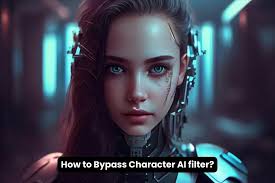From clear to dark: AI tools like NSFW Character Interpretation in the AI artificial intelligence field are raising new questions of individual privacy. Given the type of content that was generated, this debate gets a little ugly. Realizing how AI systems handle the problem of consent has big impacts on their development and informs public opinion with respect to legislative responses.
The Concept of Consent in AI
What is Consent in the World of AI?
More specifically, the concept of consent in AI on NSFW content centers around an understanding that all digital depictions and creations be produced with dignity for the individuals who may seem depicted or implicitly referenced in any generated works. In real terms, this means AI created images that directly mimic a singular identifiable human should not be generated without the express permission of said individual.
Mechanisms in Place
Control in Training Data
AI tools - even NSFW character generation ones, just like these typically are based on huge amounts of data to analyze and learn from which they then interpolate in order for creating new material. Developers must build these datasets from images in the public domain or created with consent from like-minded models. Instead, some developers opt to train such NSFW models on synthetic data or fully fictional characters generated by another AI -- sidestepping human-made content altogether.
Regulatory Compliance
In areas such as the European Union, new guidelines for using personal data (including biometric ones) like GDPR make models developing relevant. Following such regulations while training, AI developers not only have to respect consent but also avoid legal sanctions.
The Challenges and Ethical Dilemmas
However, these stop-gaps may not be enough to achieve informed consent in the complex world of AI:
Anonymity vs. Reality: While models are trained on fake characters, their output can resemble real people so much there is a concern for potential invasion of privacy and non-consensual representation
Prejudice and Stereotyping: AI systems might involve, reproducing biases spoiling or genuine evidence around demographics.
Informed Consent: The principle of informed consent in AI is a particularly challenging issue, as it can be very difficult to clearly inform everybody who features in training data what rights they are handing over — especially when those use-cases could involve broad commercial exploitation (forever and on any digital platform).

Where Consent in NSFW Character AI is Headed
This is why developers who focus on creating NSFW Character AI tools are always experimenting with new workarounds to bypass the limitations. This includes better tools for anonymization to make sure that AI-generated images don't look inadvertent like real people and strengthened user agreements which lay out the trails of where data feeds go, as well as what rights do people who might be trained by their likeness on an AI system have.
Social and Legal Implications in the Community
Solidifying a Foundation for Ethical AI
In the future, AI developers will have to work even more closely with both legal experts and ethicists in order to create a framework of consent that is universally applicable for all AIs. This framework should extend beyond NSFW AI, and encompass any generative technologies defined in a manner ensuring they act ethically (rather than just legally) with the attributes of respecting individual rights and dignity.
Freeing the User with Technology
Another way AI could advance is by giving the user more control over when and how their data is used Blockchain technologies may allow for more transparent and easily verified consent transactions.
Here, NSFW Character AI consent is just in its nascent stage and could be catered dynamically as the technology progresses while simultaneously meeting ever-growing cultural demands. Inevitably, the goal also will be to make sure AI always serves humanity while being ethically built with privacy and individual autonomy in mind.